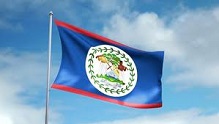 SAN IGNACIO, BELIZE—The steady rise of ecotourism as opposed to the more traditional model is just the tip of an iceberg of a rising service industry geared towards satisfying customer demands to “do the right thing,” according to the owner of Belize’s first eco-resort.
SAN IGNACIO, BELIZE—The steady rise of ecotourism as opposed to the more traditional model is just the tip of an iceberg of a rising service industry geared towards satisfying customer demands to “do the right thing,” according to the owner of Belize’s first eco-resort.
Lucy Fleming, who with her husband Mick opened the Lodge at Chaa Creek in September 1981 after struggling to support themselves as farmers in this tiny Caribbean country, said their experience proves that there is a large market of people who rate a resort’s environmental credentials as highly as a reputation for quality and service. And that providing both is a proven key to success.
“When eco-tourism began in Belize, there was a great deal of nervousness about the ability to meet guests’ expectations for quality while remaining true to stringent environmental standards,” Lucy said. “The success of ecotourism in Belize has proven beyond doubt that this can be done. As it turned out, there was a large audience out there who were receptive to the idea that a holiday can actually contribute to the environmental and social wellbeing of the host country.”
Belize, a relatively new Central American nation with a large Caribbean coastline protected by the world’s second largest barrier reef, was a cash poor former crown colony known as British Honduras prior to gaining independence in September 21, 1981, the same date the Flemings began taking in guests to supplement their meagre farming income.
Ecotourism: Country’s Primary Generator of Income
As Belize’s economy shifted from an agrarian and fisheries based one to one driven by tourism, Chaa Creek grew along with it as tourism took hold inland and on the Belize Great Barrier Reef and coastal islands known as cayes. Ecotourism is now the country’s primary generator of income and foreign exchange and has substantially raised the standard of living for Belize’s estimated 335,000 citizens, a multicultural melange of indigenous Maya, African, Mestizo, European, Lebanese, East Indian and other ethnic groups. It is the only Central American country with English as the official language.
With a very high proportion of the land under protected management status, and the Belize Great Barrier Reef a UNESCO World Heritage site, Belize enjoys a worldwide reputation for its pristine environment and a tourism industry based on the principles of responsible travel.
“What some developers see as a hindrance, the majority of Belizeans see as protection from exploitation and the rampant overdevelopment you can see throughout the region,” Lucy said. “We’re very fortunate that the early, post-independence government worked with us to develop an ecotourism model based on sustainability. And the fact that it was so successful proved the initial assumptions were correct. Now the challenge is to protect both the image and more importantly, the reality of Belize as a clean and green destination.”
Lucy cited one example of this challenge as the ongoing debate between cruise ship tourism versus ecotourism that has grown more heated recently with the signing of a proposal by Norwegian Cruise Lines to purchase a caye in a remote, environmentally sensitive part of southern Belize to construct a port facility. The proposal has met with intense opposition from industry stakeholder groups such as the Belize Tourism Industry Assn. (BTIA) and the inhabitants of villages such as picturesque Placencia, which will be severely impacted by the development.
Six Past Association Presidents Expressed Concern in Letter
In an open letter to Belize’s Prime Minister, Dean Barrow, six past presidents of the BTIA wrote that the proposal diminishes Belize’s unique status as a true ecotourism destination.
“Belize is a one-of-a-kind jewel that is becoming increasingly rare and valuable, just as surely as mass cruise tourism is becoming more common,” the letter said. “All we ask is for Belmopan to take a deep breath and press the ‘pause’ button. Talk to the people who have worked for decades to position this country among the world’s most desirable destinations. Discuss what effect this decision will have on Belize’s reputation and ability to attract high value visitors in the future.”
“Let us take the time to work together and look closely at where our industry and indeed our nation should be going,” the letter continued. “Belize and Belizeans deserve no less.”
Lucy, one of the signatories of the letter, described the current debate as a prime example of the ongoing challenge Belizeans face in protecting the future of their environment and Belize’s green credentials.
Hope in Democratic Process
“The bad news is that the government even signed such a memorandum of understanding without wider consultation,” Lucy said. “The good news, however, is that we are a vibrant democracy and that Belizeans use those democratic processes and freedom of speech to have an effect on how Belize develops.
“In some developing countries, big overseas corporations have the financial clout to dictate government policy and do what they want,” Lucy continued. “Thankfully, here in Belize we’ve already established that ecotourism works and that the vast majority of the citizens are willing to fight to protect it.”
“So we have good reasons to remain optimistic that little Belize will hold her own against unbridled development and continue to provide the world and its inhabitants, human and non-human, with a pristine sanctuary for generations to come,” Lucy concluded.
The Lodge at Chaa Creek is an award winning eco-resort set within a 365-acre private nature reserve in Belize.





